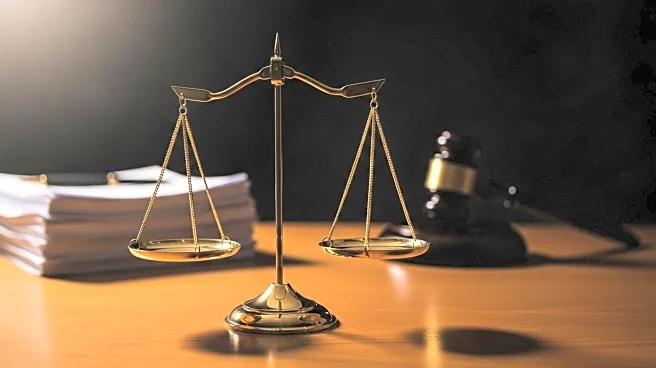What's Happening?
Former FBI Director James Comey has entered a plea of not guilty to charges of making false statements and obstructing a congressional proceeding. The charges were brought against him in connection with his actions during his tenure as the head of the FBI. The plea was entered on Wednesday, marking a significant development in the legal proceedings against Comey. The charges suggest that Comey may have provided misleading information to Congress, which is a serious offense given the importance of truthful testimony in legislative oversight.
Why It's Important?
The case against James Comey is significant as it involves a high-profile figure who once led the FBI, an agency critical to national security and law enforcement. The charges of false statements and obstruction of a congressional proceeding are serious, as they strike at the heart of the integrity expected from public officials. This case could have implications for how congressional oversight is conducted and the accountability of public officials. It also raises questions about the transparency and honesty of those in positions of power, potentially affecting public trust in government institutions.
What's Next?
As the legal proceedings continue, there will likely be increased scrutiny on the evidence presented by both the prosecution and defense. The outcome of this case could influence future legislative and judicial actions regarding the conduct of public officials. Observers will be watching closely to see how this case unfolds and what precedents it might set for similar cases in the future. The legal community, as well as political analysts, will be particularly interested in the implications of this case for congressional oversight and the legal standards applied to public officials.








